|
Maturity 1 to 4 years
Are you done socializing? NO! Like your
training efforts, which continue on into
adulthood and throughout your dog’s entire life,
you are never done with socialization. He still needs
to meet and greet people, go places with you, and
continue to share your world and your experiences,
if you want him to continue to be the happy, friendly
dog he is today. Refers to sexual maturity as opposed
to being full-grown. Smaller dogs mature earlier, larger
dogs later. If you were lax in your work earlier on, you
may now see the things you have missed: object guarding,
unfavorable reactions towards unfamiliar people, animals,
or things that your dog missed during the socialization stage.
|
What you should be doing:
Until this period has been reached, it is
recommended that your pup remains crated or
the equivalent (structure) when you are not available
to supervise his behavior.
You will know when your dog can be trusted by testing
him for short periods (10-15 minutes) while you leave the
house. If your dog is damaging property while loose, he is not ready.
|
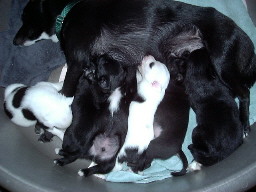

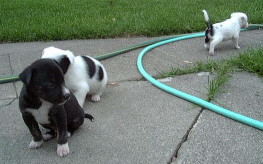

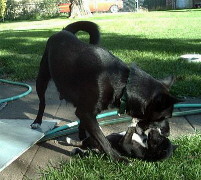
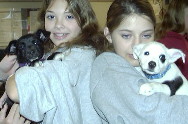
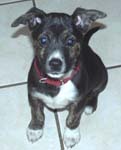
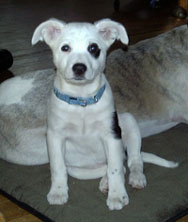 .
.